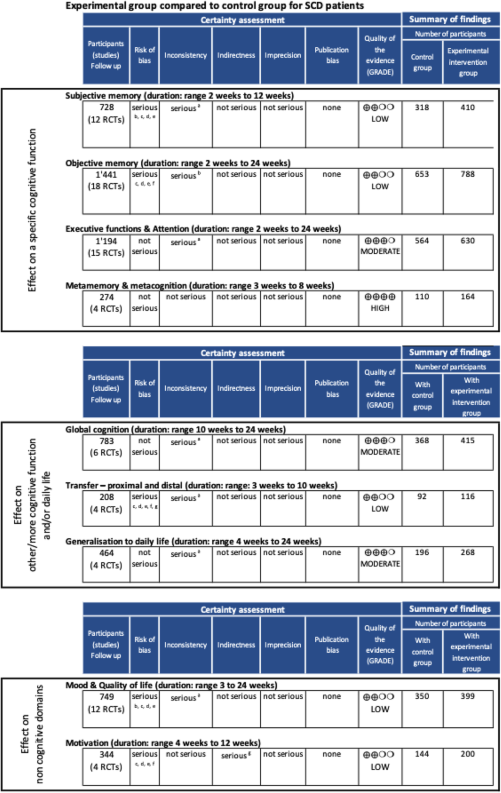
- Legend: Actionable domains were identified and relevant outcomes for the SCD population were selected and classified in three sub-categories: (i) direct effects on a specific cognitive function, (ii) effects on global cognition and/or daily life, and (iii) effects on non-cognitive domains
- GRADE Working Group grades of evidence. High quality: Further research is very unlikely to change our confidence in the estimate of effect. Moderate quality: Further research is likely to have an important impact on our confidence in the estimate of effect and may change the estimate. Low quality: Further research is very likely to have an important impact on our confidence in the estimate of effect and is likely to change the estimate. Very low quality: We are very uncertain about the estimate
- aResults are very different depending on the study. bUsually, studies show a positive impact, but sometimes it is not higher than other therapies. In 5 studies, there was no significant positive objective memory evolution. In 4 studies, there was a positive and significant improvement of objective memory but not significantly higher than in the other therapies. cFew blinded studies. dThe inclusion criteria for SCD is not good enough, a major problem even in recent studies. eVery often no mean intention to treat analyses. fAllocation for treatment is always respected (RCT) and data are well reported. gUse of other variables (attendance to a group, exercises’ done...)

